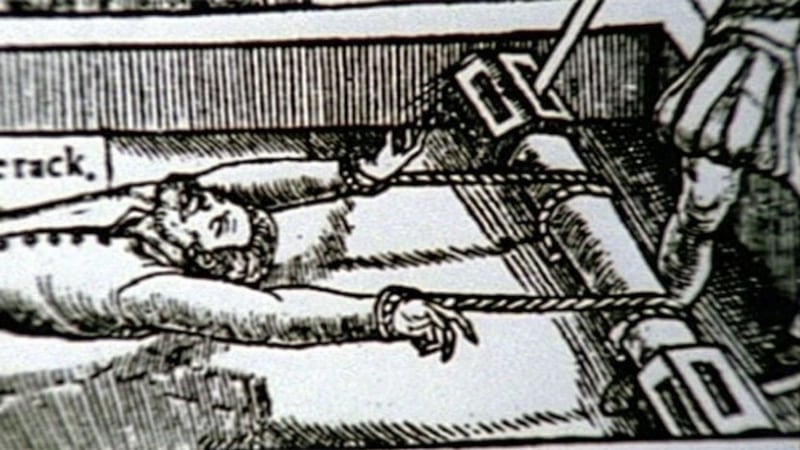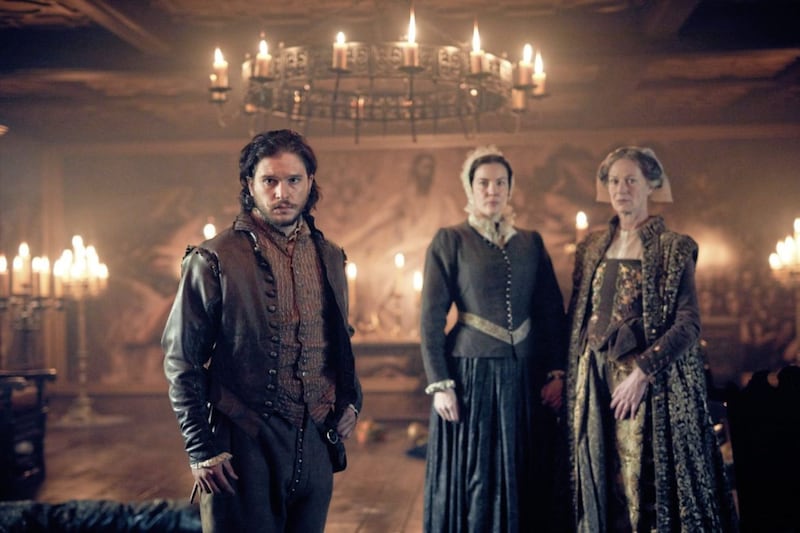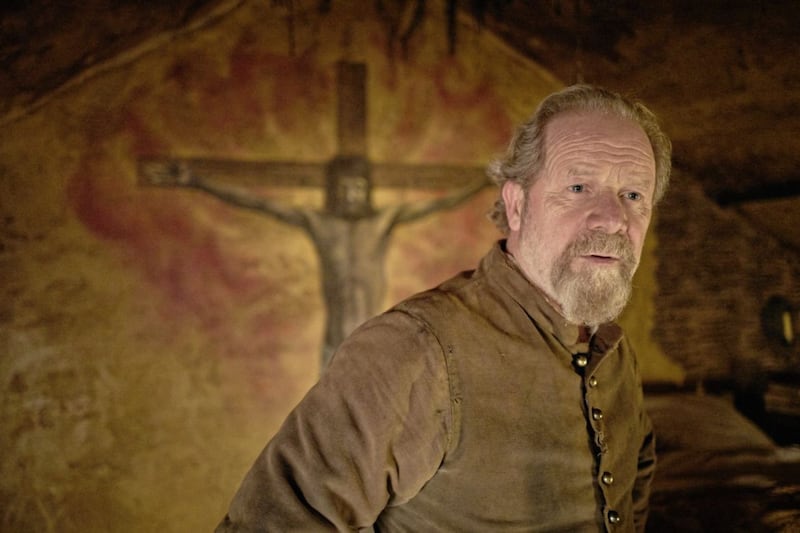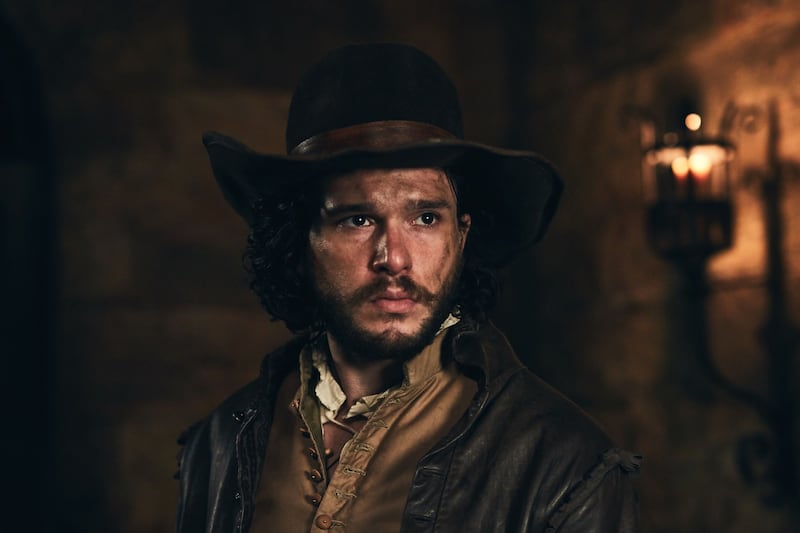RONAN Bennett has dismissed criticism of graphic torture scenes in his new prime-time BBC drama Gunpowder, saying "there's an off button".
The opening episode of the three-part series - about the plot to blow up the Houses of Parliament in 1605 - included close-up scenes of a young priest being hanged, drawn and quartered and a woman stripped naked before being crushed to death by a stone slab.
It led to a storm of complaints on social media.
The Saturday night drama was defended by a BBC spokesman, who said: "The scenes aired after 9.30pm with a clear warning given to viewers before the episode started.
"The methods depicted are grounded in historical fact and reflect what took place during the time of the gunpowder plot."
Irish writer Bennett also argued yesterday that the vast majority of responses had shown viewers understood the need for such gruesome scenes.
Interviewed on BBC Radio 4's World at One, he said it was "totally necessary".
"As a dramatist, I don't set out to shock people or to give them an uncomfortable experience, what I do is I concentrate on the basics - storytelling, character and so-on - but I also have to create a world.

"What you're trying to do is give the viewer the sense that they're not just watching something, they're not just spectators, but almost as if they're participating, almost as if they're there. It's an immersive experience and this particular world is a barbaric one."
Bennett was raised in Newtownabbey and attended St Mary's Christian Brothers' Grammar School in west Belfast.
He was convicted aged 18 in 1974 of murdering RUC Inspector William Elliott during an Official IRA bank robbery in Rathcoole, but the conviction was declared unsafe the following year.
After moving to England he was also accused of conspiring to cause explosions but the charge was later dropped and he was acquitted at a trial of related offences.
Bennett went on to study history at King's College London and worked as a researcher for Labour MP Jeremy Corbyn.
He collaborated on Guildford Four member Paul Hill's on his account of his wrongful imprisonment and has written several acclaimed screenplays for film and television, including The Hamburg Cell and the controversial Rebel Heart about the Easter Rising.

Set in 1605 London, Gunpowder follows the fortunes of Robert Catesby - played by Game of Thrones star Kit Harrington - and co-conspirators who devise a plot to blow up Parliament and and kill the king.
Harington, who helped create the series and is a direct descendant of Catesby on his mother’s side, has said it was important to show the persecution of Catholics at the time to understand why the characters embarks on such an extreme act.
Bennett said modern dramatists are held to a very high standard of authenticity.
"The obvious point is there's an off button, a thousand other channels you can go to or you can read a book," he said of the criticism.
"I looked at social media and I looked at Twitter and what I saw there was very obviously a minority of people who felt that they show was too gory and too graphic.

"It has to be for the audience to understand the persecution and there has to be motivation of Catesby and his fellow plotters."
The screenwriter added that while he didn't set out to write a drama with modern resonance to the graphic torture by Isis fighters, "I love history. I read history all the time. I'm always surprised by how little we learn from history."







